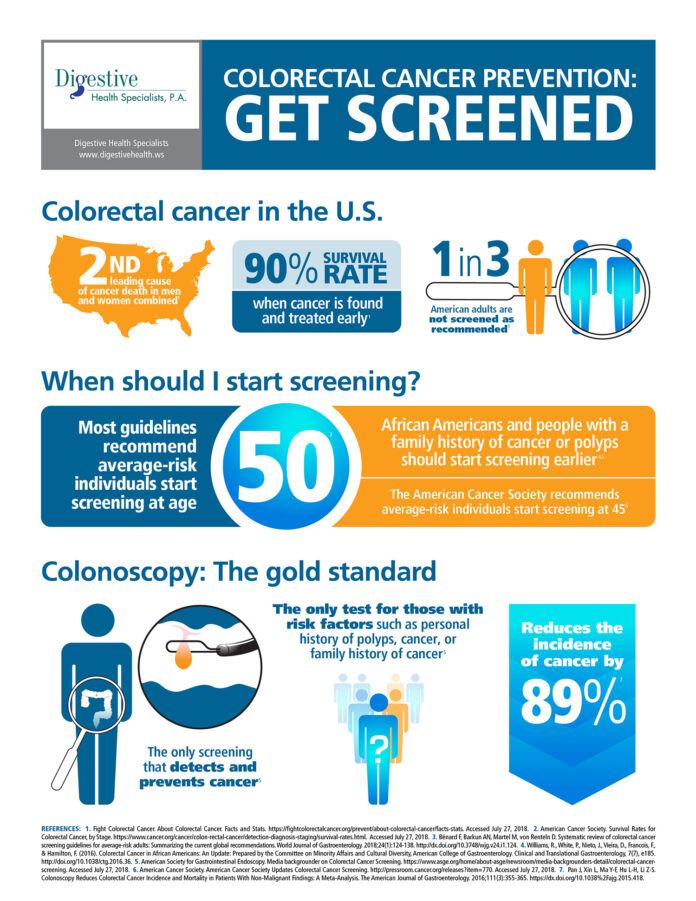
Colon cancer is a prevalent and potentially deadly disease that affects both men and women. It is the third leading cause of cancer-related deaths in the United States, and the American Cancer Society estimates that there will be over 100,000 new cases of colon cancer diagnosed this year. In an effort to combat this deadly disease, experts are now recommending screening for colon cancer to start earlier than previously recommended.
Traditionally, the recommended age for colon cancer screening has been 50 years old. However, recent research has shown that the incidence of colon cancer is increasing in younger age groups. In fact, a study published in the Journal of the National Cancer Institute found that the rate of colon cancer among adults aged 20 to 39 has increased by 1.6% per year from 2004 to 2014. Additionally, another study published in the journal Cancer Epidemiology, Biomarkers & Prevention found that adults born around 1990 have twice the risk of developing colon cancer and four times the risk of developing rectal cancer compared to adults born around 1950 when they were the same age.
These alarming findings have led experts to reevaluate the age at which colon cancer screening should start. In response to these studies, the American Cancer Society now recommends that people with an average risk of colon cancer should begin regular screenings at age 45. This change in guidelines is significant because it means that millions of Americans are now recommended to start screening for colon cancer at an earlier age.
The decision to lower the recommended age for colon cancer screening was not made lightly. It was based on a thorough review of the latest scientific evidence, which clearly shows that colon cancer is affecting younger individuals at an increasing rate. By lowering the age for screening, experts hope to catch colon cancer at an earlier, more treatable stage and ultimately save lives.
There are several screening options available for colon cancer, and the best one for you will depend on your individual risk factors and preferences. The most common screening test is a colonoscopy, which is recommended every 10 years for average-risk individuals. During a colonoscopy, a doctor uses a colonoscope, a long, flexible tube with a camera and light, to examine the entire colon and rectum for any abnormalities or signs of cancer. If polyps or other abnormal tissue are found, they can be removed during the procedure, reducing the risk of developing colon cancer.
Other screening options include stool-based tests like the fecal immunochemical test (FIT) and the high-sensitivity guaiac-based fecal occult blood test (gFOBT). These tests are non-invasive and can be done at home, but they must be done more frequently than a colonoscopy – every year for the FIT and every one to three years for the gFOBT. If an abnormal result is found on one of these tests, a follow-up colonoscopy will be recommended.
Another screening option is the flexible sigmoidoscopy, which is similar to a colonoscopy but only examines the lower part of the colon. The American Cancer Society recommends a flexible sigmoidoscopy every five years for average-risk individuals. Like a full colonoscopy, any abnormal findings can be addressed during the procedure.
There is also a new, non-invasive option called the multi-target stool DNA test (mt-sDNA). This test looks for DNA mutations and blood in the stool that could be indicative of colon cancer. It is recommended every three years for average-risk individuals. If an abnormal result is found, a follow-up colonoscopy will be necessary.
Regardless of the screening method you choose, the most important thing is to get screened for colon cancer. Early detection is key to successful treatment, and regular screenings can reduce your risk of dying from colon cancer. Experts agree that the benefits of screening outweigh the potential risks, and that everyone should be screened according to their individual risk factors, including family history, lifestyle, and other health conditions.
In addition to getting screened for colon cancer, there are other steps you can take to reduce your risk of developing the disease. Eating a healthy diet that is high in fruits, vegetables, and whole grains and low in red and processed meats can help reduce your risk of developing colon cancer. Regular exercise, maintaining a healthy weight, and avoiding smoking and excessive alcohol consumption can also lower your risk.
If you have a family history of colon cancer or certain genetic conditions, you may be at a higher risk and should talk to your doctor about the appropriate screening schedule for you. African Americans are also at a higher risk of developing colon cancer and should begin screening at an earlier age – the American College of Gastroenterology recommends starting at age 45.
In conclusion, the recommended age for colon cancer screening has been lowered to age 45 for average-risk individuals based on recent studies showing an increasing incidence of colon cancer in younger age groups. Getting screened for colon cancer is crucial for early detection and treatment, which can ultimately save lives. There are several screening options available, and the best one for you will depend on your individual risk factors and preferences. In addition to regular screenings, maintaining a healthy lifestyle can also help reduce your risk of developing colon cancer. If you have a family history of colon cancer or certain genetic conditions, talk to your doctor about the appropriate screening schedule for you. By taking these steps, you can protect yourself from this deadly disease and potentially avoid a devastating diagnosis.












